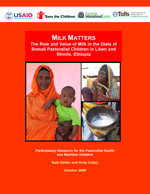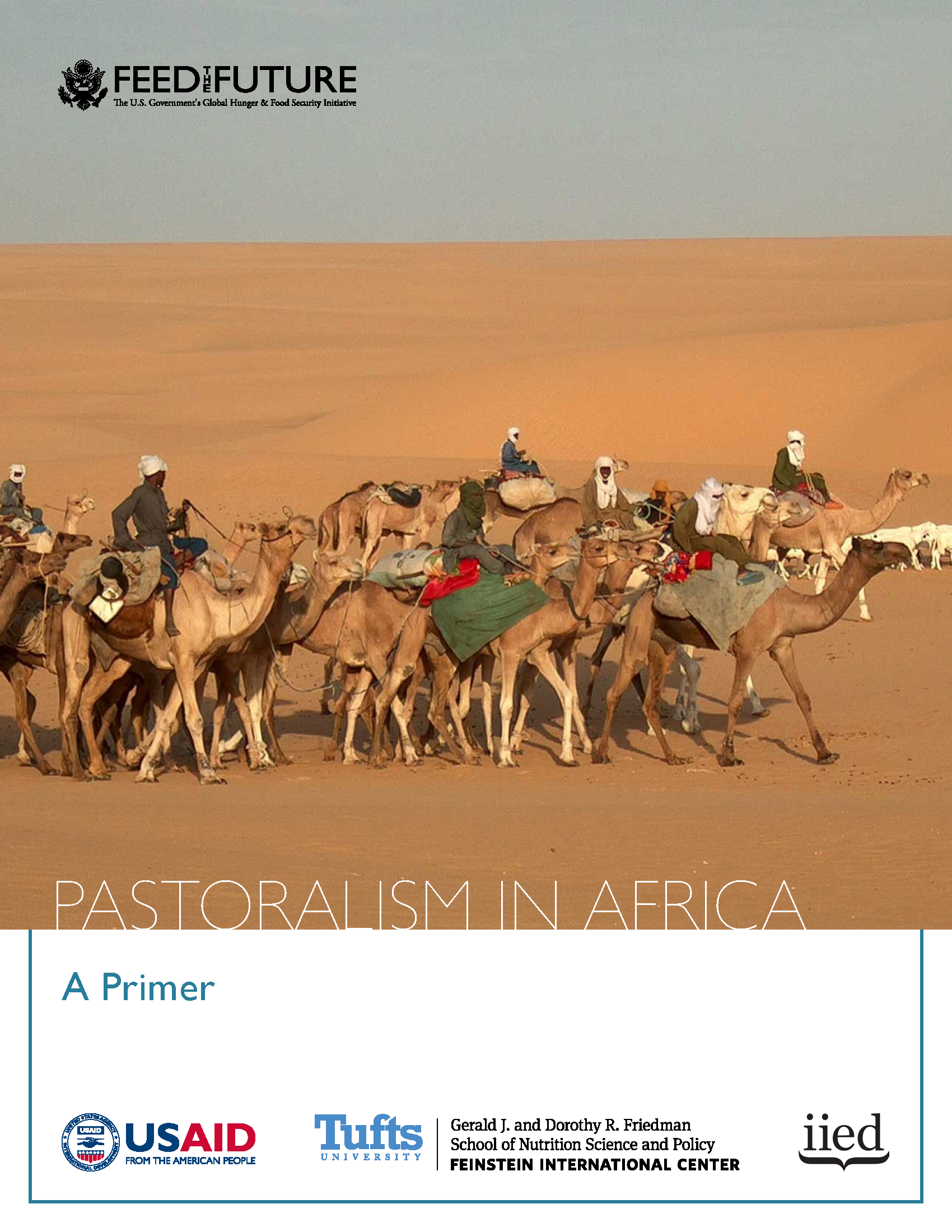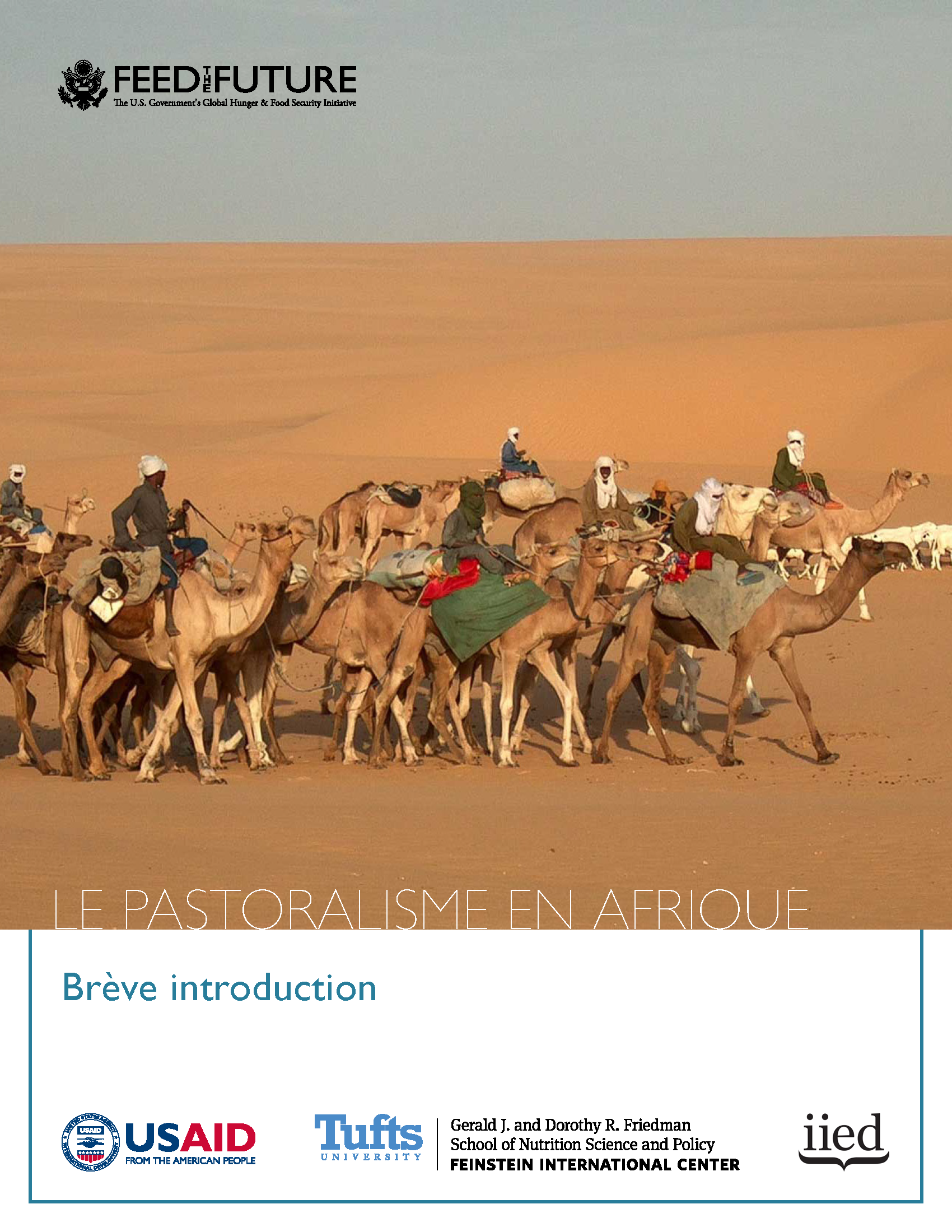This report is the outcome of the first phase of Milk Matters: a joint venture between the Feinstein International Center, Save the Children USA and Save the Children UK in Ethiopia. Milk Matters ultimately aims to improve the nutritional status of children in pastoralist/semi pastoralist areas in the horn of Africa. Based on work conducted in Shinile and Liben Zones of Somali Region Ethiopia, this study aimed to ask pastoralist women and men what they think about important causes of child malnutrition, links between child nutritional status and animal milk supply, and “best bet” interventions for addressing malnutrition in their communities.
We find that the demand for and perceived benefit of animal milk for young children is high and that, when it is available, it makes a large contribution to the dietary intake of young children in study communities. Participants perceived a direct and important association between reduced milk intake and the weight loss experienced by young children during the dry season and drought and suggested that the most effective way to improve availability and access to milk during these times was through the maintenance of the health and nutritional status of their livestock. This report concludes by discussing the implications of these findings for programming that aims to improve the nutritional status of children in pastoralist areas.







